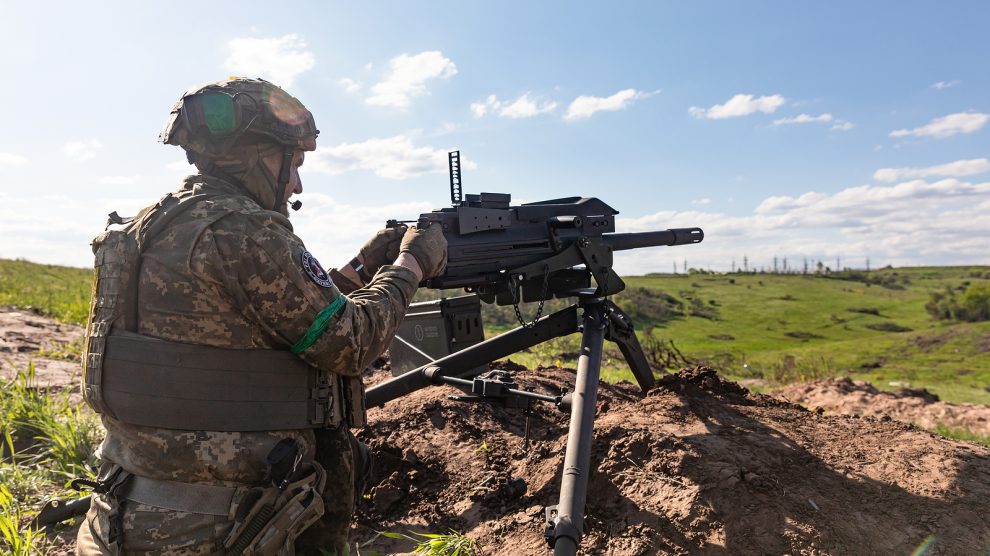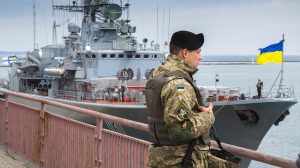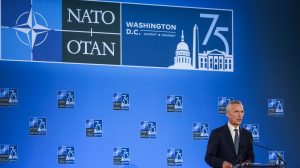You can read all of our coverage of Russia’s invasion of Ukraine, including explainers and articles offering context and background information here.
Russia’s invasion of Ukraine
After months of inching through minefields, villages and open steppes in gruelling combat, Ukrainian forces are making somewhat bigger advances along two major lines of attack, according to analysts, Ukrainian officials and Russian military bloggers.
Although Ukraine has not advanced more than 10 to 12 miles on either vector of attack, its gains are important in that it is compelling Moscow to divert forces from other parts of the front line, military analysts say. The Institute for the Study of War, a Washington-based think tank, called the advances “tactically significant,” saying Moscow’s redeployment would most “likely further weaken Russian defensive lines in aggregate,” creating “opportunities for any Ukrainian breakthrough to be potentially decisive.”
The Ukrainian military launched the counteroffensive this summer amid high hopes of duplicating its stunning sweep through the Kharkiv region in September, but those hopes were dashed amid heavy losses, causing commanders to change strategy from head-on assaults to a war of attrition, content to make steady, little gains while conserving resources and degrading those of the Russians.
Even as Ukrainian soldiers battle in trenches and on the field, the campaign to sever Russian supply lines continues, with Ukrainian missiles and drones targeting sites far from the front lines.
Ukrainian President Volodymyr Zelensky broadened his battle against graft this week, firing all the heads of Ukraine’s regional army recruitment centres as the war with Russia enters a critical stage.
Zelensky said a state investigation into centres across Ukraine had exposed abuses by officials ranging from illegal enrichment to transporting draft-eligible men across the border despite a wartime ban on them leaving the country. He said 112 criminal cases had been opened in a wide-ranging probe launched after a graft scandal at a recruitment office in Odesa region last month and used harsh rhetoric likely to be welcomed by Ukrainians appalled by cases of wartime corruption.
Ukraine has made cracking down on graft a priority as it fends off Russia’s full-scale invasion and seeks membership of the European Union and has fired or prosecuted a string of high-ranking officials implicated in sleaze. Zelensky said that any sacked army recruitment officers who are not being investigated should head to the front to fight for Ukraine “if they want to keep their epaulettes and prove their dignity”.
The Dutch Defence Ministry and the British Royal Air Force said they scrambled fighter jets when Russian bombers were tracked flying toward the airspace of the Netherlands and off Scotland, respectively, on Monday.
The pair of Russian warplanes spotted in each location were flying in international airspace. Denmark’s air force said its fighter jets identified the Russian bombers flying over the Baltic Sea toward the Netherlands. The Dutch Defence Ministry said it then scrambled two of its own F-16 fighters.
Britain’s air force said two Typhoon fighters were launched to monitor the Russian bombers as they flew north of the Shetland Islands off Scotland. The Russian Tu-142 Bear-F and Tu-142 Bear-J, which are used for maritime reconnaissance and anti-submarine warfare, were in airspace that is part of NATO’s northern air policing area.
Russian aircraft entering the UK’s zone of international airspace can pose a hazard to other planes because they often don’t communicate with air traffic control or broadcast their coordinates. The Typhoons stayed with the Russian planes until they were out of the UK’s area of interest.
A senior NATO official has apologised and clarified his comments a day after he said publicly that Ukraine could give up territory to Russia in exchange for Nato membership and an end to the war.
Stian Jenssen, the chief of staff to the NATO secretary general, Jens Stoltenberg, told a Norwegian newspaper that he should not have spoken as simplistically as he did, after his initial comments prompted an angry reaction from Kyiv.
At a panel event in Norway on Tuesday, Jenssen had said that while any peace deal reached would have to be acceptable to Ukraine, alliance members were discussing how the 18-month war might be brought to an end.

Other news from the region
Three suspected members of a Russian spy ring who were arrested in the UK are being investigated in their native Bulgaria amid fears they were part of a pro-Kremlin network and may have attempted to interfere with elections there. Prosecutors in Sofia, working alongside Bulgaria’s counter-espionage unit, are looking into the activities of Orlin Roussev, Biser Dzhambazov and Katrin Ivanova, who were detained in London and Norfolk in February on suspicion of spying for Russia.
Several diplomats from the Russian embassy in Moldova left the country on a charter plane on Monday, after being expelled in the wake of what Moldovan authorities called “unfriendly actions”. The flight carried approximately 100 people, among them diplomats and technical staff from the Russian embassy, as well as their family members. Moldova announced in July that it was expelling 45 Russian diplomats and other embassy staff after reports suggested that new surveillance equipment was installed on the Russian embassy roof.
Armenia and Azerbaijan clashed at an emergency meeting of the UN Security Council on Wednesday over the plight of the 120,000 people in the Nagorno-Karabakh region that Armenia says are blockaded by Azerbaijan and facing a humanitarian crisis. Armenia asked for the meeting saying Azerbaijan’s blockade of the Lachin Corridor, the only road connecting mainly Armenian-populated Nagorno-Karabakh to Armenia since July 15, had left its people with dwindling food, medicine and electricity.
Latvia‘s centre-right prime minister, Krišjānis Kariņš, announced that he will step down this week after the two other members of his three-party governing coalition rejected a cabinet reshuffle. The prime minister, who belongs to the liberal-conservative New Unity party, had been pushing to widen the coalition to include the Alliance of Farmers and Greens and the Progressives, an idea that his coalition partners had rejected.
Lithuania announced it will close two of its six border crossings with Belarus. The two rural crossing points, which are not used by commercial vehicles, will be closed from August 18. The government said the decision was in response to changes in the geopolitical situation and threats to national security, as well as smuggling. Belarus’s western neighbours have increased security since Minsk granted shelter to fighters from Russia’s Wagner mercenary group.
The former head of Poland’s electoral commission has announced that he will boycott the ruling Law and Justice (PiS) party’s planned referendum and has offered advice to the public on how they can legally avoid participating while still voting in parliamentary elections that are due to take place at the same time. The country’s second-largest opposition group has also announced a boycott of the referendum, which critics say is designed to boost turnout in support of the government on election day.
The Killers have apologised after frontman Brandon Flowers invited a Russian fan on stage during a concert in Georgia to play drums on a song. He told the crowd to treat the Russian fan as their “brother”, drawing boos and walk-outs from parts of the arena. Georgia, which gained independence in 1991, has a long history of tension with its neighbour. Russia invaded Georgia in 2008 and still occupies part of the country.
In a diplomatic about-face, Turkmenistan has signalled its readiness to develop a Trans-Caspian pipeline that potentially could increase natural gas deliveries to the European Union. The westward shift in Ashgabat’s export intentions is not expected to impact Turkmenistan’s ability to fulfill existing export commitments to China. The Central Asian state is believed to have more than enough reserves to send large volumes of gas eastward and westward.
Unlike many news and information platforms, Emerging Europe is free to read, and always will be. There is no paywall here. We are independent, not affiliated with nor representing any political party or business organisation. We want the very best for emerging Europe, nothing more, nothing less. Your support will help us continue to spread the word about this amazing region.
You can contribute here. Thank you.







Add Comment